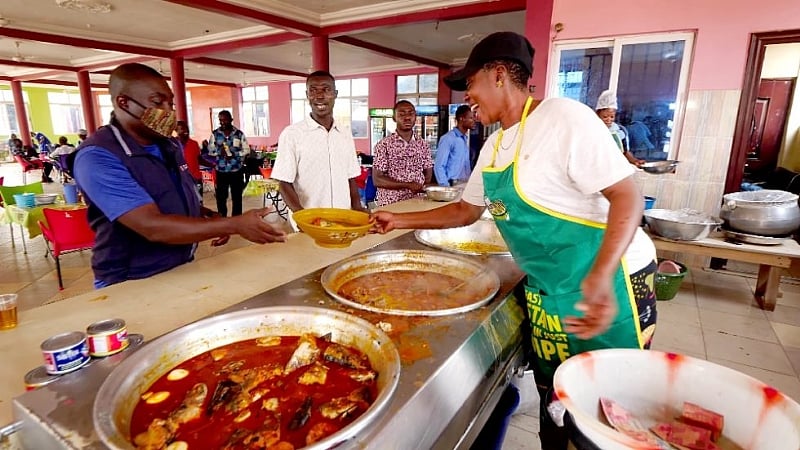The Food and Drugs Authority (FDA) of Ghana has issued a strong caution to street food vendors against the dangerous practice of reselling leftover food. This practice, driven by the desire to minimize losses and maximize profits, poses a significant threat to public health due to the increased risk of foodborne illnesses. Improper storage and handling of leftover food can create a breeding ground for harmful bacteria and other contaminants, potentially leading to severe health consequences for consumers. The FDA emphasized the importance of preparing food in quantities that match the expected demand, urging vendors to accurately estimate their daily customer base and cook accordingly. This proactive approach minimizes the likelihood of having excess food that requires storage and increases the risk of contamination.
The FDA’s warning came during a sensitization workshop organized for street food vendors in Accra, coinciding with the 2025 World Food Safety Day. This initiative underscores the FDA’s commitment to public health education and proactive prevention of foodborne illnesses. The workshop focused on equipping vendors with the knowledge and skills necessary to maintain high standards of food safety and hygiene. The Head of the Street Food Vending Inspection Unit at the FDA, Madam Amatu Osman Subuur, stressed the paramount importance of consumer health, urging vendors to prioritize safe food handling practices over profit maximization. She highlighted the potential dangers of improperly stored or reheated leftover food, which can become a source of contamination and lead to foodborne illnesses.
Beyond addressing the issue of leftover food, the FDA also emphasized the crucial role of regular medical checkups for all food handlers, including cooks and assistants. These checkups, recommended at least annually, are essential for ensuring that food handlers are free from any communicable diseases that could contaminate the food they prepare and serve. This proactive measure safeguards both the health of the food handlers and the consumers they serve. The FDA also reiterated the importance of maintaining a clean and hygienic cooking environment, free from pests and other sources of contamination. They advocated for the use of protective clothing, such as aprons, hairnets, and gloves, during food preparation and serving to further minimize the risk of contamination.
The 2025 World Food Safety Day, themed “Food safety: Science in action,” provided a timely platform for the FDA’s sensitization efforts. This global observance aims to raise awareness about the importance of food safety and promote practical measures to prevent, detect, and manage foodborne risks. The day’s objectives include educating the public about food safety issues, demonstrating the effectiveness of safe food practices in preventing foodborne illnesses, and fostering collaborative strategies to enhance food safety across all sectors. The FDA’s participation in this global event reflects its commitment to aligning with international best practices in food safety and contributing to the broader effort to enhance global food security and public health.
The FDA highlighted its multifaceted approach to food safety enforcement, emphasizing education as a key component alongside regulatory measures. This strategy aims to promote voluntary compliance among food vendors by equipping them with the knowledge and understanding necessary to adopt safe food handling practices. Furthermore, the FDA encouraged consumers to actively participate in ensuring their own safety by verifying the hygiene permits and medical clearance of street food vendors before making purchases. This empowers consumers to make informed decisions and hold vendors accountable for maintaining appropriate hygiene standards. This collaborative approach, involving both vendors and consumers, creates a shared responsibility for ensuring food safety.
The sensitization workshop included testimonials from food vendors who have successfully implemented safe food handling practices in their businesses. Madam Lucy Aryeetey, CEO of Mama Luu’s Kitchen, shared her insights on the importance of personal hygiene in the food industry, emphasizing the need for meticulous cleanliness in all aspects of food preparation and serving. She highlighted specific practices, such as using ice cubes to maintain the coldness and prevent contamination of salads, and thoroughly washing vegetables with vinegar and salt. This practical advice provided valuable insights for other vendors seeking to improve their hygiene standards. The FDA’s emphasis on practical examples and peer learning underscores the importance of sharing best practices within the street food vendor community to drive widespread adoption of safe food handling procedures.














